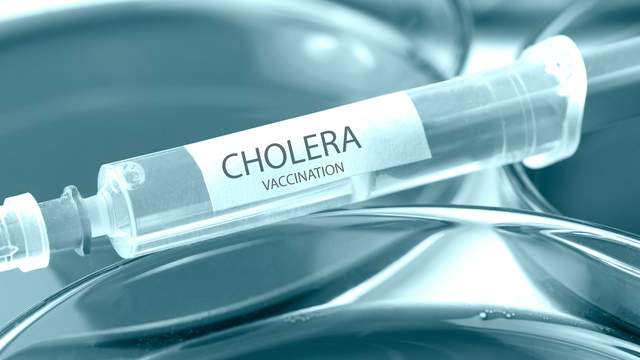Cholera Outbreak: 40 people dead, 398 infections confirmed
.
Data from the Ghana Health Service (GHS) indicate that 41 persons are currently on admission in various hospitals while the disease has spread to one more district, La Dadekotopon in the Greater Accra Region.
Dr Dennis Laryea, Health of Disease Surveillance, Ghana Health Service, told the Ghana News Agency, that 4,850 suspected cholera cases had so far been recorded in the Greater Accra, Eastern, Central, Ashanti and Western Regions.
He said 96 new suspected cholera cases were recorded in the affected regions with 29 confirmed cases from December 26 to 31, 2024.
Currently, cholera infections have been recorded in 48 districts with a Case Fatality Rate of one point two per cent.
Dr Laryea said phase two of sub national Oral Cholera Vaccination campaign had been successfully completed in 18 subdistricts within four hotspot districts in the Western Region: Sekondi-Takoradi, Effia Kwesimintsim, Shama and Ahanta West, with 596,205 persons vaccinated.
Dr Laryea said that most of the infections recorded were not severe but fatalities were being recorded due to the delay in reporting cases to the health facilities.
“Deaths are occurring because most of the patients who had cholera tried to self-medicate, some report to the hospital three days after the cholera infection,” he said.
The Director said the lack of clean water in some of the affected districts, the practice of open defecation and poor hand hygiene had contributed to the cholera outbreak.
He urged the public to practice frequent hand washing with soap under running water and the use of hand sanitizers in cases where there was no access to clean water.
Between 2017 and 2023, Ghana did not record a cholera outbreak although a few indigenous cases were reported.
The Head of disease surveillance said regular handwashing with soap under running water among the public during the COVID-19 outbreak was an effective measure to control infectious diseases.
Cholera is an acute diarrheal infection caused by ingesting food or water contaminated with the bacterium Vibrio cholerae.
According to the World Health Organization (WHO), cholera remains a global threat to public health and serves as an indicator of inequity and a lack of social development.
Symptoms of cholera include frequent diarrhoea, vomiting, and dehydration, along with abdominal cramps, fever, headache, fatigue, dry mouth and throat, and decreased urine output.
Medical experts warn that severe cases of the disease can be fatal within hours if left untreated.
Most individuals infected with cholera may not exhibit symptoms, but the bacteria can still be present in their faeces for 1 to 10 days post-infection, potentially contaminating the environment and infecting others.
A minority of patients develop acute watery diarrhoea with severe dehydration. This can lead to death if left untreated.
Cholera transmission is closely linked to inadequate access to clean water and sanitation facilities. Typical at-risk areas include peri-urban slums, as well as camps for internally displaced persons.
Early detection and treatment are crucial to preventing complications and reducing mortality.
The Ghana Health Service has advised the public to drink safe treated water, eat well-cooked or properly handled food, avoid close contact with infected individuals, practice good hygiene; wash hands with soap under running water, ensure a proper disposal of faeces and report to the nearest health facility if experiencing profuse diarrhoea and vomiting.
Sourcecitinewsroom 10th January 2025 8:09 PM
Subscribe to receive breaking news from us.
DISCLAIMER: The Views, Comments, Opinions, Contributions and Statements made by Readers and Contributors on this platform do not necessarily represent the views or policy of WikiGhana.
Login and you would be notified when you are mentioned in a comment
